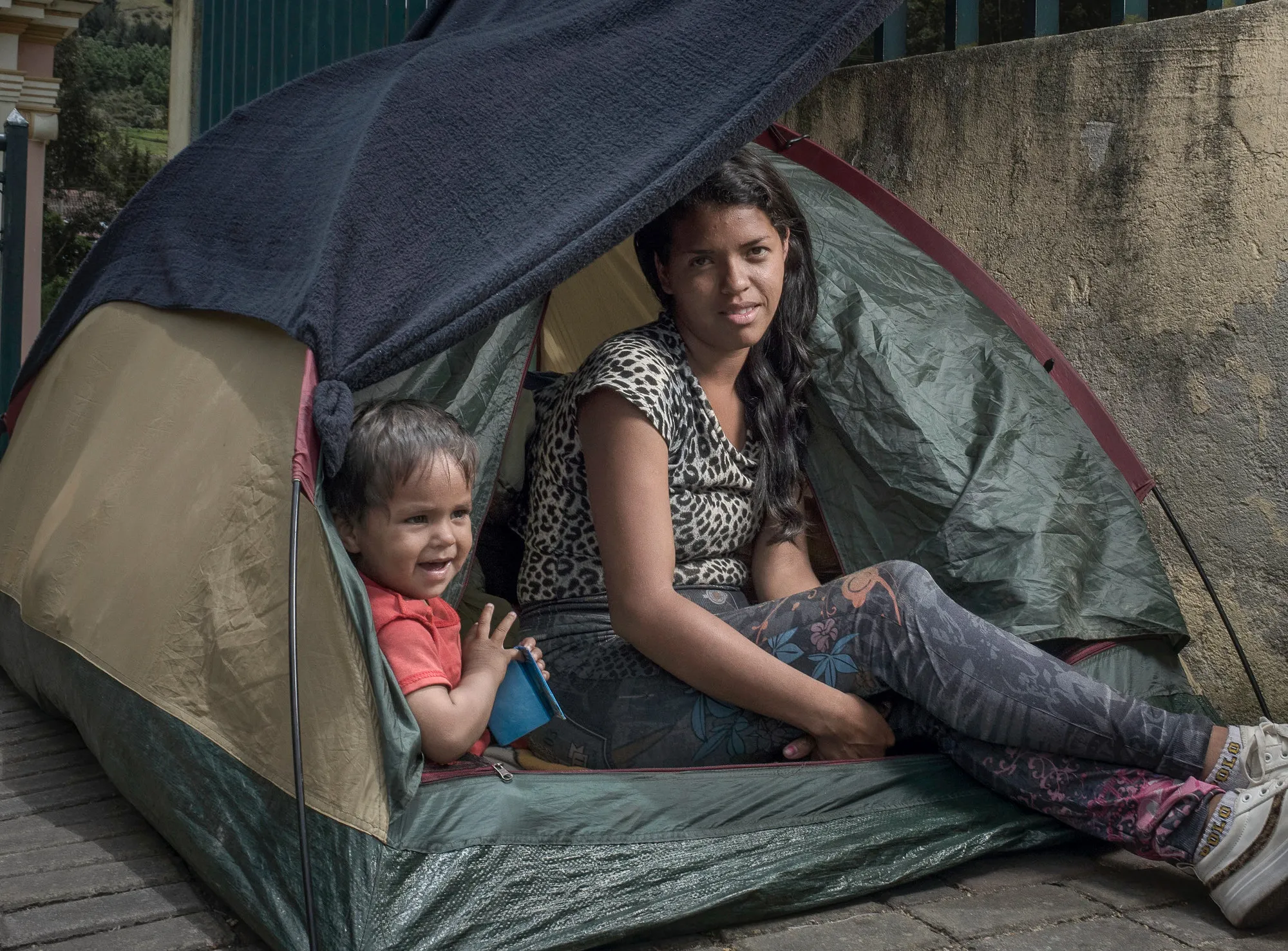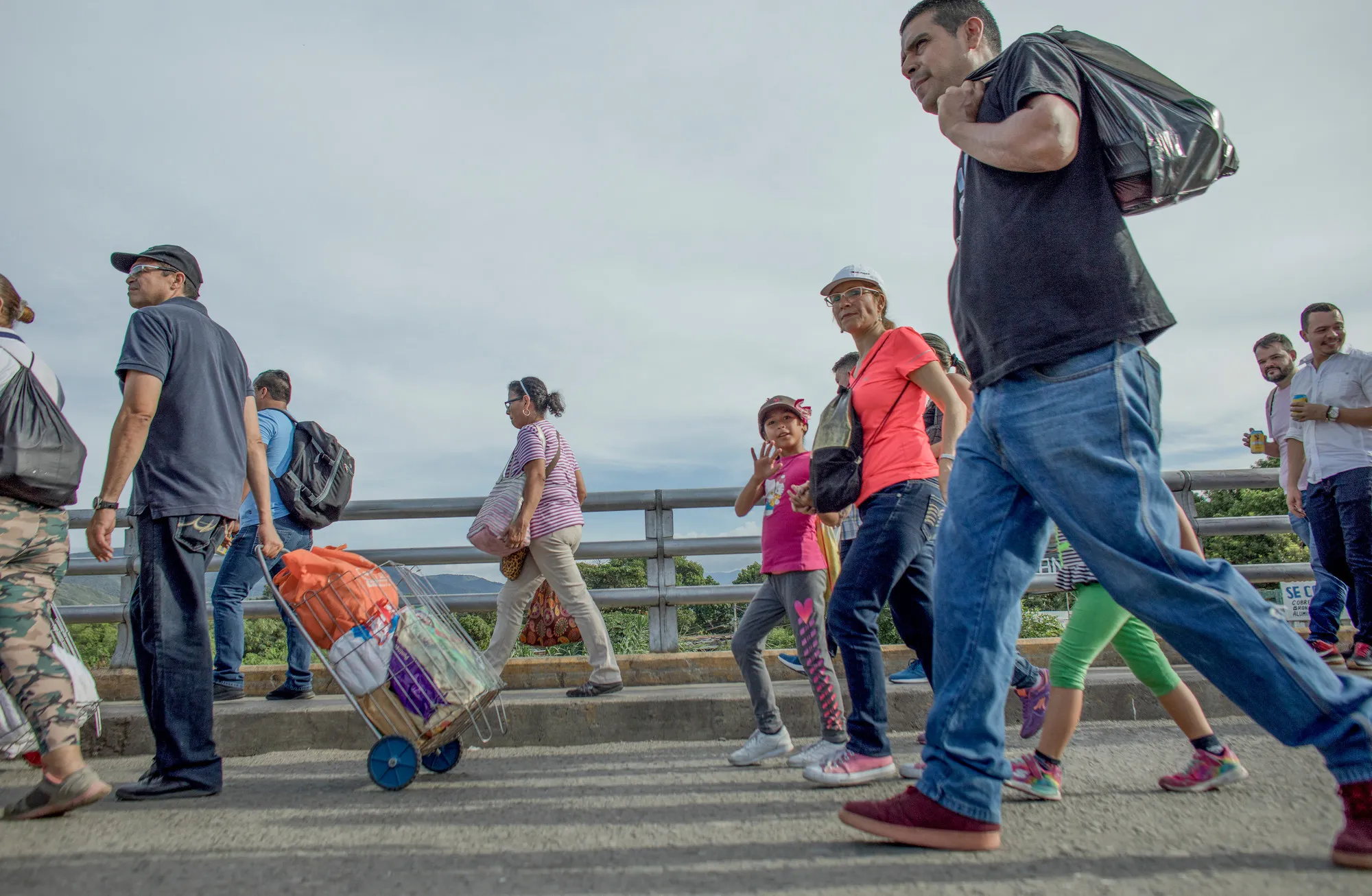Roxana Natali Artega
“One leaves … for our children, so that they have a better future.”
I came with my son and my now ex-husband. We came because the situation was very hard, the business we had no longer gave [yield], we had to close it and emigrate to give my son a better life, a better education, and food because he was already very thin. The trigger [for leaving] was the economic situation. My business was not enough anymore. We did not know whether to buy merchandise or buy food, because every day the [prices] went up.
Now, we already have other ventures and we are going to be able to start another business like the one we had in Venezuela. [My son] is in second grade and very intelligent. My mother, she was left alone, but it is our wish to bring her. We need the tranquility that our mother gives us.
[My hope] is above all help for the Venezuelans who are arriving. I have seen many people who are arriving on foot, I have seen them with open wounds on their feet from walking so much. Sometimes they are elderly people, pregnant woman … the other day I saw a boy who was in a wheelchair who came with his brother and the man said he had gone two days without eating. One leaves, more than anything, aside from hunger, for our children, so that they have a better future.
Dayan Anabel Perez
“I have managed to overcome my barriers and thank God I am still fighting to get ahead.”
I decided to leave my country because of the situation in which I was living. I had a job – I was in charge of a deli – but every day the cost went up and business was decreasing, and I had to resign. My son has a psychomotor delay and in Venezuela, a medical, neurological, pediatric consultation is very expensive. But I continue in the fight with him and supporting him day by day. Also, I experienced domestic violence from my son’s father and when I arrived here in Pamplona, I found CARE, which has helped me with phycological and legal consultations.
For me, it was not easy to leave my country, since [it is] home, and to come to a country where you do not know their customs, you have to adapt. But since I have been here for a year and a half, I have managed to overcome my barriers and thank God I am still fighting to get ahead.
My hope is that [people] help Venezuelan migrants anywhere, that they help us get started. There are many Venezuelans who want to get ahead, have a decent job and earn a salary that anyone earns. My hope is that all Venezuelans who are out of our country today can have a good job or some organization will support us in getting started.


